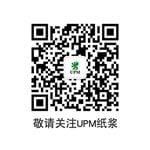13 years after joining UPM in China, Rachel Wang, Senior Researcher at the company’s Asia Pacific (APAC) Research and Development Centre, still feels the same strong excitement and enthusiasm towards her work that she did at the beginning of her career.
“I always feel happy at work, because there are always new challenges to tackle, making me motivated every day before going to work,” Wang says.
She began working at UPM’s Research and Development Centre in Changshu, China in 2007, immediately upon completion of her master’s studies in papermaking and has continued to move up the career ladder in a number of roles ever since.
Following several years of providing technical support to UPM’s paper mill and label factory in Changshu, Wang was promoted to Laboratory Supervisor, which involved overseeing logistics, increase general competence and staff training. In 2013, when the Pulp Research Team was founded, Wang’s supervisor recommended that she apply for the researcher position due to her relevant experience, excellent performance and expertise.
“Switching to a new position can be daunting to some people, but I see the move as recognition of my capabilities. That’s why I immediately accepted the new role and have never regretted the choice. I love my current position so much that I can’t believe seven years have passed,” she chuckles.

Wang is in charge of pulp R&D at UPM’s APAC team. Photo credit – UPM/Rachel Wang
Troubleshooting for customers and industries
Currently leading pulp R&D in UPM’s APAC team, Wang says her responsibilities largely consist of providing the APAC customer service team with technical support and working with customers to solve pulp-related production issues. “Sometimes, our customers’ questions are related to their final products or the use of our pulps. That’s when my team steps in, alongside the APAC Pulp technical support team, to offer solutions, investigations and explanations backed by comprehensive lab analysis and studies,” she explains.
The troubleshooting process can be challenging yet rewarding. “Once, we spent a whole month identifying the cause of an impurity in a customer’s products. We went through all the manufacturing steps and studied various possibilities. I was thrilled when we finally found out the root cause,” Wang recalls. “Although the issue had nothing to do with our pulp products, I felt a great sense of fulfilment from helping our customer solve the puzzle.”
On top of technical issue analysis for the pulp and paper industries, Wang is also in charge of developing new paper materials for different industries. As governments around the world increasingly emphasise the need to replace plastics with environmentally friendly alternatives like paper and other biomasses, Wang believes her research work is contributing to and can potentially lead the green revolution across many industries.
“It’s very exciting to know that my work can have a positive impact on society and the environment, which urges me to keep improving my skills,” she adds.

UPM offers equal opportunities to thrive in the workplace. Photo credit – UPM/Rachel Wang
Looking beyond gender
Besides her own efforts, Wang attributes her fast and smooth career growth to UPM’s open and empowering work environment. “I’ve enjoyed great freedom to propose and implement my ideas since day one, with the support of clear guidance and sufficient resources. This has definitely helped me gain rich experience while quickly expanding my skills,” she notes.
Wang thinks the company’s focus on employee empowerment is also a reason why she is never confronted with gender inequality in the workplace. “Having always been given enough and equal opportunities to thrive, I probably only notice the gender difference when there are heavy things to carry,” she says with a laugh.
Nevertheless, Wang is aware that her experience as a female researcher is not common in China, where only 30% of scientists are women and female professionals are often blocked from achieving higher career goals due to pregnancy and social bias. “I’ve heard stories like women around 30 having difficulty finding a job because employers worry that they might get pregnant soon after starting the position,” she states.
As a mother of two, she highly appreciates her colleagues’ help during her maternity leave. “Thanks to the great teamwork, I was able to be immediately back on track after returning from the break.”
Wang believes true equality can only happen when competence is valued over gender, which is also a rule that she follows as a team leader. When assigning a task, she always focuses on each candidate’s capabilities.
On a personal level, Wang encourages younger female colleagues to take on challenges at work without being limited by their gender. “The more you challenge yourself, the more skills you will learn. All these efforts will at some point help you seize the best opportunity to move further,” she concludes.
Text: Letitia Lin
